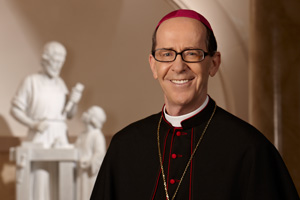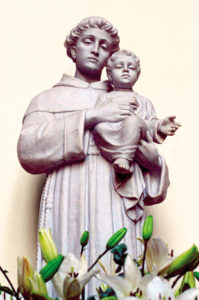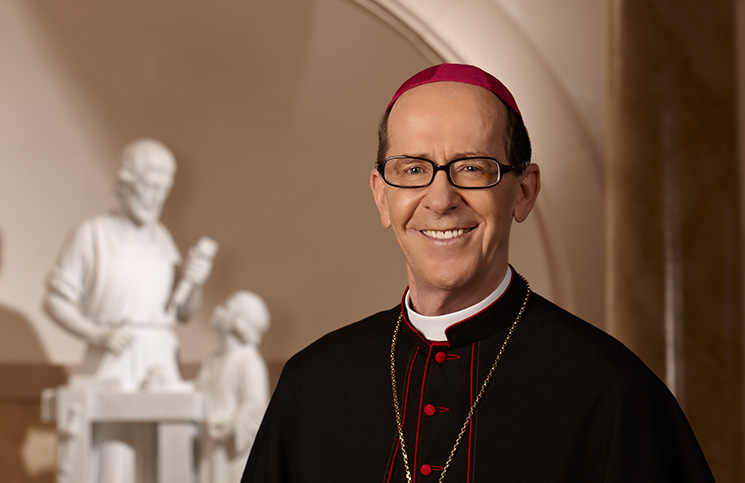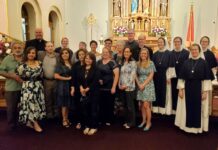Sixth in a series
[dropcap type=”4″]H[/dropcap]is Franciscan brothers at the little friary near Forli hardly suspected that the new friar, who had come from Portugal by way of Morocco several months before, was capable of more than washing dishes and scrubbing floors. The friar himself seemed more than content to remain in this lowly position, despite the fact that he had studied theology and the Sacred Scriptures at the Augustinian Abbey of St. Vincent on the outskirts of Lisbon, and there had memorized large sections of the Old and New Testament, as well as the writings of many of the Doctors of the Church.

Even among his Augustinian brothers in Portugal, his exceptional scholarship and keen insights into the word of God went largely unnoticed; and he himself seemed pleased merely to serve in obedience as the guest master of the abbey, and then use any free time to pray, study and draw closer to Jesus. Perhaps it never occurred to him that his intelligence far surpassed that of his confreres or that he had a very rare gift of eloquence and facility with languages. Having become an Augustinian canon at the age of 14, he transferred to the Franciscans 11 years later, inspired by the first Franciscan martyrs and wanting like them to die for love of Christ at the hands of Muslims in Morocco.
A failed martyrdom?
So, off went Anthony to Morocco, but instead of martyrdom, he got dysentery. Instead of a glorious death for love of Christ, he got sick as a dog and had to return to his native land. But God had other plans in mind.
The ship intended to take him to Lisbon got engulfed in such a violent storm that somehow it ended up, far to the northeast, on the shores of Sicily. There, after recovering his health sufficiently to travel north to the Tuscan region of Italy, he was assigned to a rural Franciscan hermitage, with the community task of assisting in the kitchen.
Once again, he was happy to serve in relative obscurity since it left him time most days for private prayer and study, time to deepen his knowledge and love of Christ; but again God had very different plans in mind.
The sermon no one expected
It happened that, on the occasion of an ordination in Forli, no friar was willing to preach in the presence of the local bishop (Bishops can be intimidating!), except this Portuguese friar from the kitchen detail, who only did so out of obedience. By the time he stopped speaking, however, his listeners were hanging onto every word, burning with deeper love of Christ, and pleading for him to say more.
And so, his peaceful days of washing dishes and scrubbing floors came to an abrupt stop. While he had remained largely hidden among his own friars, he soon became famous throughout Italy and France. He was sent as a missionary preacher across southern Europe, plagued as it was by heresies and general confusion about the Catholic faith. He was assigned to teach in universities and to preach to ordinary people in piazzas, churches and even in open fields.
We have lost a father


When Anthony died at Padua in AD 1231, the people cried out, “We have lost a father.” For indeed he had fed his spiritual children with the solid food of God’s word and the inspiring teaching of doctors of the Church like Augustine, Gregory and Bernard (not knowing that one day he himself would be numbered among them).
Anthony had helped the people to discover the mercy of God and to find new life through a good confession. He fought the incarceration of men who could not pay their debts and successfully petitioned for the first law ever to prohibit this practice that had fractured so many families. Is it any wonder that many were inspired by St. Anthony to trust in their identity as beloved sons and daughters of God and to believe that friendship with Christ, the Beloved Son of God, was not only possible but deeply desired by Him?
Maybe St. Anthony’s spiritual fatherhood had its origins in his spiritual childhood. Frequently, St. Anthony had delighted in the words of Jesus (Mt 18:3), “…unless you turn and become like children, you will not enter the Kingdom of heaven.” He had always been content, wherever the Lord led him, to be considered of little importance in the eyes of men. We don’t know for certain, but it could be that this is the reason that St. Anthony of Padua is depicted in sacred art holding the Child Jesus. After all, the reason that Jesus came into the world was to reveal His Father’s love, to call sinners to repent and be reborn as children of God.
Living in an age where fatherhood is often misunderstood and poorly lived, and where children suffer the bitter consequences, we could say with the people of Padua, “We have lost our father;” we have lost our confidence in God’s fatherly love, lost our appreciation of His words, spoken through the prophet Jeremiah (29:11), “I know well the plans I have in mind for you…plans to give you a future full of hope.”
Religious priests, consecrated men and women, are usually called “Father, Sister or Brother” because of who they are in Christ, and who they have become for others. St. Anthony reminds us of the blessing of “becoming like children” and also of serving others through our call today to spiritual motherhood and fatherhood.






![[VIDEO] Make Sunday feel like Sunday again](https://www.catholicsun.org/wp-content/uploads/2021/04/2021-YOUTUBE-BISHOP-MESSAGE-THUMBNAIL-ENGLISH-218x150.png)